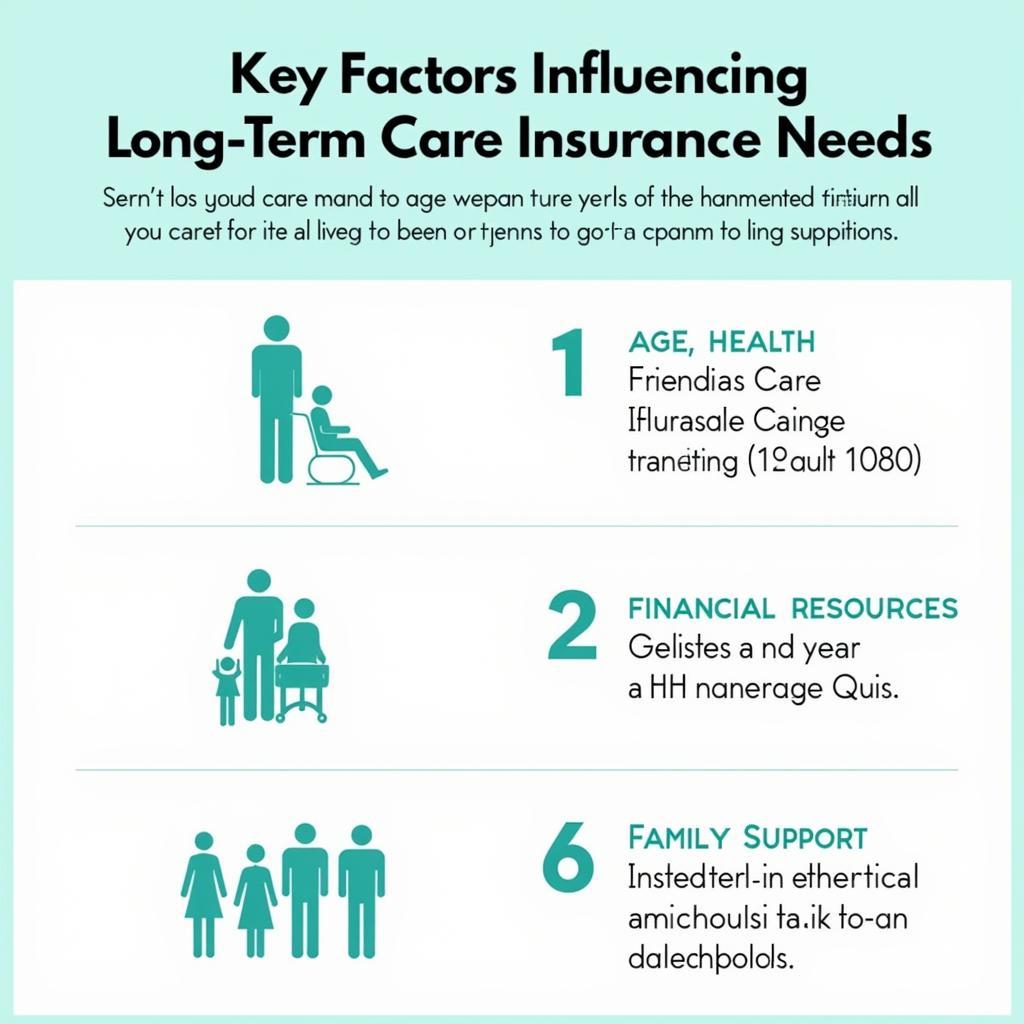Long-term care insurance isn’t dead; it’s evolving. It’s no longer just about covering nursing home costs; it’s a sophisticated estate-planning tool that can protect your assets and provide peace of mind for you and your family. With rising healthcare costs and longer lifespans, incorporating long-term care planning into your overall estate strategy is more crucial than ever.
Why Long-Term Care Insurance is an Essential Estate-Planning Tool
Traditional estate planning focuses on wills, trusts, and minimizing estate taxes. However, neglecting long-term care planning can quickly deplete your assets, leaving little for your heirs. Long-term care insurance can help bridge this gap, preserving your legacy and providing for your future needs.
- Protecting Your Assets: Long-term care expenses can be substantial, potentially wiping out your savings and investments. Insurance helps cover these costs, safeguarding your assets for your loved ones.
- Maintaining Independence: Long-term care insurance can provide access to a wider range of care options, including in-home care, assisted living, and nursing homes, allowing you to maintain more control over your life.
- Reducing Family Burden: Caring for an aging loved one can be emotionally and financially draining for families. Insurance eases this burden, allowing family members to focus on providing emotional support rather than financial management.
- Planning for the Unexpected: Nobody knows what the future holds. Long-term care insurance provides a safety net, ensuring you have access to quality care if you need it.
How to Integrate Long-Term Care Insurance into Your Estate Plan
Integrating long-term care insurance into your estate plan requires careful consideration and professional guidance. Here are some key steps:
- Assess Your Needs: Evaluate your current health, family history, and financial situation to determine the level of coverage you need.
- Consult with Professionals: Speak with a financial advisor and an estate planning attorney to develop a comprehensive strategy that aligns with your goals.
- Explore Policy Options: Understand the different types of long-term care insurance policies available, including traditional, hybrid, and partnership plans.
- Consider Tax Implications: Some long-term care insurance premiums may be tax-deductible. Consult with a tax professional to understand the potential benefits.
- Review and Update Regularly: Your needs and circumstances may change over time. Review and update your estate plan and long-term care insurance coverage regularly.
Is Long-Term Care Insurance Right for You?
Deciding if long-term care insurance is right for you depends on your individual circumstances. Factors to consider include your age, health, financial resources, and family support system.
- Age: Younger individuals typically benefit from lower premiums.
- Health: Pre-existing conditions may affect eligibility and premium costs.
- Financial Resources: Consider your ability to pay premiums and potential out-of-pocket expenses.
- Family Support: Evaluate the availability of family members to provide care if needed.
Debunking the Myth: Long-Term Care Insurance is Not Obsolete
Many believe long-term care insurance is too expensive or unnecessary. However, with rising healthcare costs and increasing longevity, it’s a valuable tool for protecting your assets and ensuring your future well-being.
“Long-term care insurance is not a luxury; it’s a necessity for many individuals. It’s about protecting your financial future and ensuring you have access to quality care when you need it most,” says John Smith, Certified Financial Planner.
“Ignoring long-term care planning can have devastating consequences for your family. It’s crucial to have open and honest conversations about your wishes and develop a plan that protects everyone involved,” adds Jane Doe, Estate Planning Attorney.
Conclusion
Long-term care insurance isn’t dead; it’s a vital estate-planning tool. By integrating long-term care planning into your overall estate strategy, you can protect your assets, maintain your independence, and provide peace of mind for yourself and your loved ones. Don’t wait until it’s too late. Start planning today.
FAQ
- What is long-term care insurance?
- How much does long-term care insurance cost?
- What types of care does long-term care insurance cover?
- When should I consider purchasing long-term care insurance?
- How do I choose the right long-term care insurance policy?
- What are the tax benefits of long-term care insurance?
- Can I get long-term care insurance if I have pre-existing conditions?
Need more information about car diagnostics? Check out these related articles on our website: [Link to other relevant articles].
Need support? Contact us via WhatsApp: +1(641)206-8880, Email: [email protected] or visit us at 910 Cedar Lane, Chicago, IL 60605, USA. Our customer care team is available 24/7.


